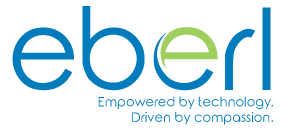A foundational element of Eberl is our commitment to “delivering exceptional service to all”. We accomplish this by way of ensuring the quality of our services are consistently subjected to reliable, first-class review processes. This is where our Quality Claim Specialists come in! These valued members of the Eberl team help keep our nationwide network of adjusters accountable for the work they produce and assist in guaranteeing that every claim submitted meets our clients’ high expectations.
Below, discover the details of Eberl’s quality assurance process and as a special bonus at the end, check out the Top 5 Adjuster Opportunities for Improvement! Here, adjusters can find useful tips for improving the claim files they submit, as suggested by our own file-reviewing team.
What does it take to be a Quality Claim Specialist with Eberl?
- Technical Competence – A set of skills that can be applied in a remote, off-site environment
- Navigation Know-How – Ability to navigate systems in a quick and efficient way
- Foundational Understanding – Exposure to the claims adjusting process is a major PLUS
- Baseline Connectivity – Good internet connection and phone service is ideal
- Collective Licenses – It’s recommended to have as many as possible
What does being a Quality Claim Specialist with Eberl look like?
- Flexibility – We recommend embracing a mixture of standard/non-standard work schedules that could include evenings/weekends
- Expectations – File reviews are to be completed within 12 hours of arrival
- Pay – Paid as a 1099 employee on an hourly basis
- Training – We ensure you receive up-to-date claims education on a regular basis
- Opportunity – To provide direct feedback/training to the field resource/IA
If you are interested in becoming a Quality Claim Specialist with Eberl (also known as File Reviewer), please log into your Eberl profile and make sure you select “File Review” in your work preferences.
Now, we’ll dive deep into our specialized process for reviewing and submitting claims files!
The Quality Claim Specialist Process:
Step 1: The adjuster turns in a prepared field inspection file, in accordance with the carrier’s expectations. Note: “Client Best Practices” or “Eberl Standard Work Product” guidelines are provided to field resources right when they receive an assignment.
Step 2: The adjuster marks the assignment as “complete” in Xactimate and uploads it for review.
Step 3: The file enters Eberl’s estimate review queue.
Step 4: A Senior Claim Specialist assigns it to one of the Quality Claim Specialist for processing.
Step 5: The Quality Claim Specialist goes through each of the pertinent documents, making sure the file is fully supported with photos as well as written descriptions and that the estimate has been properly prepared. Note: The majority of Eberl’s clients have the expectation that our company does a file review on every single claim that is processed through our system, regardless of an adjuster’s experience. Adjusters with more experience see their files processed quicker due to the Quality Claim Specialist’s familiarity with their work product and those with less experience receive more assistance or coaching to get their files up to par. This a great learning tool to help new adjusters grow!
Step 6: If all of those items are in line, the Quality Claim Specialist marks the assignment as “reviewed” and the file is sent back to the carrier (in accordance with their expectations) for final settlement with the insured.
Step 7: If during the process, the Quality Claim Specialist identifies an error or omission that warrants correction by the adjuster, the Quality Claim Specialist will collaborate the file to make the needed corrections or will mark the file “reviewed with exception”. The file will then be sent back to the field resource (adjuster) with a detailed list of what needs to be corrected/edited.
Step 8: Once the revisions are completed, the Quality Claim Specialist will send the file back to the carrier for finalization!
Lastly, for adjusters seeking out advice for further improving the work they submit while on the job, we’ve compiled a list of most-needed areas of improvement that our team of Quality Claims Specialists observe day-to-day.
Top 5 Adjuster Opportunities for Improvement:
#1: Documentation – High-quality photographs and written narrative reports are very important! Detailed descriptions and explanations are key to a successful claim documentation. Tip: Make sure you fill out the claim file fully before moving onto the next one – this will save you a ton of time and won’t cut into your overall productivity.
#2: Spelling – Be sure to spell check and avoid common spelling errors.
#3: Scope Sites – Take the time to take appropriate scope sites and ensure your roofing documentation is complete. Tip: Don’t inspect more than you can close! Be sure you get everything you need so you don’t have to go back to the site of the claim.
#4: Sketching – Make sure the sketch is complete and accurate before leaving the property – don’t miss any measurements! Our clients rely on us to properly document damages.
Eagle View – Clients allow us this ability in the packages they provide! We still need to take the time to make sure they’re accurate and confirm that there is 1 horizontal measurement and 1 rafter-length measurement. Tip: A common error occurs when there is an addition to the home that was NOT present in the photos or an RV that’s parked right next to the home that picks up as a roof in photos. Be conscious of these aspects!
Openings – In your sketch, make sure to have your openings properly drawn. Without them, Eberl could potentially overpay on the claim.
#5: Roofing Tasks –Make sure to enter the waist and properly round off to the nearest bundle. Don’t move too quickly and overlook this step!
Thank you for reading! We hope this information was useful to you, as either someone who’s interested in learning more about the in’s and out’s of becoming a Quality Claim Specialist or a claims professional looking to level up your knowledge about the file submission process.




Great information very informative. Thank you very much